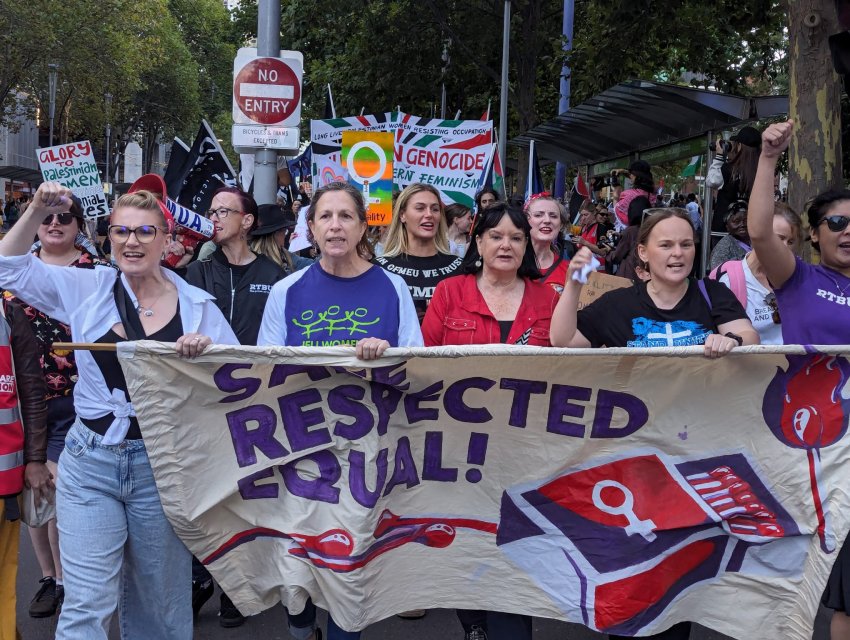
Anthony Albanese used International Women’s Day to tout his Labor government’s “commitment to gender equality”.
He said Labor is “delivering” on March 8, pointing to the expansion of paid parental, and family and domestic violence leave and the idea of adding super to government parental leave.
These changes will, of course, benefit some women. But it also leaves women (and children) making up the majority of the underclass.
While Labor refuses to seriously tackle the structural disadvantage which produces the gender pay gap, or implement measures to reduce corporate profiteering and price gouging, it can only claim to be delivering for those women already “at the table”.
Women, who still perform most of the unpaid domestic work, are also bearing the brunt of the cost-of-living crisis. New research found 87% of young women are “severely stressed” about it.
Older women are stressed too; even after a lifetime of work and raising families, they find they have no structural support when things go wrong. According to the Australian Bureau of Statistics (ABS), women aged 55 years and older are the fastest-growing cohort of homeless people.
Soaring rents, domestic violence, health issues (and less bulk-billing) as well as a loss of work are the key factors forcing older women into homelessness.
There have also been dramatic increases in the number of homeless women aged 35–44 and 12–18.
The Australian Housing and Urban Research Institute found that there are more barriers preventing women from finding affordable housing than men, particularly as the gender pay gap means women earn, on average, 14% less than men.
Access to housing, a key driver of domestic violence, is a human right. But this federal government, together with mostly state Labor governments, refuses to take the crisis seriously.
Demolishing what little public housing there is to hand it to private, “social housing" providers, is privatisation by stealth.
Unsurprisingly, rising prices and stagnating wages are impacting on women’s mental health.
A Senate report on extent and nature of poverty in Australia, released on February 28, offered 14 recommendations to improve the welfare system. Shockingly, it did not suggest a rise in welfare payments, which currently sit far below the Henderson Poverty Line.
A Labor majority sat on this 18 month investigation, so perhaps its findings were predictable.
The Antipoverty Centre (AC) described the recommendations as “pathetically inadequate”, given that living costs are “far outstripping changes in Centrelink payment rates”.
Those on Centrelink payments now have to navigate the partner income test, which reduces or cuts people off receiving payments if they are deemed to be in a relationship. This forces women into financial dependence.
Women who are not citizens have no access to welfare payments and are forced to work in precarious, insecure workplaces with little oversight on fair pay or protections around sexual harassment.
As the AC pointed out, Labor is “actively pursuing higher unemployment” by supporting the Reserve Bank of Australia’s dubious and painful plan to curb inflation.
The ABS’ unemployment rate in January was 3.9% and the RBA wants to push that to 4.5% — which will disproportionally affect women.
The Centre for Excellence in Child and Family Welfare criticised the poverty inquiry for failing to “deliver a plan” or giving “any solid recommendations”.
It accused the inquiry of failing to consider the concrete suggestions from more than 250 submissions and nine public hearings.
If the Albanese government was serious about gender quality, starting with the cost-of-living crisis, it would immediately raise all welfare payments, allow everyone access regardless of their visa status, scrap the partner income test and invest in buying and building public and real affordable housing for all those who need it.
No amount of International Women’s Day self-congratulatory X threads and fancy morning teas will convince those facing real financial insecurity that Labor has their back.
If you agree, become a Green Left supporter or donate to our 2024 Fighting Fund.